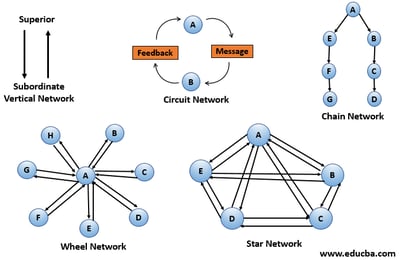- 🗞 News
- Last updated: Jun 8, 2023
- 8 Min Read
Does Working Remotely Lower Productivity?
Written by

Verified by


According to Steve Blank, in the start-up world you can achieve 3.5X faster growth from working together in the office… is this true?
The conversation about remote work has been a hot topic in companies since the COVID-19 pandemic. Hybrid work models have become more common, and the expectation of being physically present in the office every day has diminished. However, at Carmoola we’re very much thinking differently about remote working.
The Carmoola team is in the office no less than four times a week, and we’re probably not going to change our mindset. Plus if there’s the chance that we can expect 3.5% faster growth, why wouldn't we be?
Communication Is More Efficient
There is an expectation for everyone to be in the office every day of the week (with the exception of Friday) to preserve the office culture. At first, when I was told this, I was a tad disappointed, I’ll be honest. However now being sat on my seat six months later, I am so happy with this decision because I can see the huge impact it’s had on my growth.
When I am at home there are times when I think about how bored I get and the day takes so much longer… Office culture is a BIG thing, our conversations are all out in the open (we literally hear everything in the office). This topic has also been a discussion point in the office and the majority do agree - we work better together. Albeit that this does work for the Carmoola team it would be naive to say that in all companies you can't have high productivity working remotely. The Carmoola team are at a stage in the company growth where we are communicating with everyone in the team pretty much throughout the whole day.
Being in the office leaves the space open for jokes, help, and also different perspectives. I often find myself asking for input, whether it be the smallest of things such as a synonym for ‘opportunity’, there’s no chance I’d put that on Slack but asking in the office is a no-brainer. We are never waiting to ‘hear back’ from someone, we have face-to-face meetings and get an answer within seconds as opposed to drafting an email and then waiting for a response, so time isn't wasted.
This visual diagram is a great example of the different communication networks:
Communication at home is predominately a vertical network whereas the office is a star network of communication. It’s a fact that everyone being in the same place is more time efficient. Not only can you get the right group of people together quickly to solve problems but you’ll also get insights from other people overhearing the conversation. Not to mention how giving (and receiving) feedback becomes much more productive. It’s always harder to judge someone’s intention and mood in a virtual environment.
For example, I’ve had multiple situations where I’ve needed help with certain tasks such as importing lists to Hubspot and not knowing the exact process, shout out to Amy who has shown me in under a minute all the different ways to export the lists and all the shortcuts in excel! If I was to be told this virtually I swear I’d still be stuck or not have understood as quickly 👀
Direct Access to The Team
Another big plus of being in the office: developing work skills and life skills. The Carmoola team is lean, and everyone is super talented. There are times when we need to have challenging discussions. Since we’re in the office, we can chat about it openly, and we learn how to have these conversations face-to-face. This goes hand in hand with life skills, you can navigate through conflicts, negotiate and compromise (this could even be about what the office snacks will be for the week!)
We have access to chatting with our team whenever we may need. Where else can you ask your CEO for a quick chat? Our CEO, Aidan Rushby, is in the office every day, and having the chance to approach him for advice and gain insights into his vision and motivations is invaluable. For instance, when writing this article, I had a quick chat with him to get his opinion on the in-office work environment and his reasons behind having the team in the office.
Another good example: I had the privilege of calling him out the other day in a weekly trading meeting… I misunderstood something Aidan said about me in the meeting, and essentially left feeling that I was not bringing much value to the team. I called Aidan out (as I thought that it was an inappropriate setting) and he completely reassured me how that was a miscommunication, and that rather he worded it in the wrong way. If this happened behind a laptop I’d probably move on with my day and have a good cry! And I'd still be left feeling that I was undervalued. Once resolved we had a great laugh about it, and agreed we were both living up to one of our values - Don’t be a d*ckhead. It’s much easier to say things behind a screen than actually say them to someone's face, AKA it's easier to be a d*ckhead 👀
Don’t get me wrong, I was stressing about it. I was definitely nervous, but I have the guts to do this because we have this open communication policy in the office, and the team have strong enough relationships to call each other out. And I knew I’d just be annoyed and staring at him every day, so it's best to have it all in the clear! No hiding behind the screen!
The Power of Social Connection
The inner competitiveness between the team is rife, we really bounce off of each other. We get our work done, yes we do have chats and laughs in between but we get our heads down and work toward the same mission: empowering our customers to be able to pay for their dream car! When we see people around us working, it’s social psychology that we want to work too. There’s a team spirit and we don't want to disappoint each other, especially seeing everyone working together who has a genuine passion for the product and an aspiration to grow. There’s been research done (which you can find here) that shows that the people who sit next to us genuinely impact our moods and how well we perform within our roles where 15% of performance was boosted if those around you are considered high performers. Bet you wouldn’t find the same outcome sitting at home 😉
There are constant idea generations, I could be chatting to Wendy about an idea for our next email newsletter and I will definitely have more input from other members of the team who hear our conversations and share their ideas too.
A couple of days ago we were discussing one of our customers who just bought a Porsche 911 and we all were chatting about how gorgeous the car was. Apparently, it’s Aidan's dream car. It’s also great having the operations team in, I know I’ve mentioned it before in a previous blog but we genuinely do chat about our customers, as a team we all hope to resolve any issues a customer is facing and try to understand their needs in more detail.
Another big perk, and a personal favourite… Thursday drinks after work. We have a gastropub just down the road from the office and most Thursdays the team goes down for a drink or two. We most often end up chatting about work but this is a time where we can relax and just have a good chat. At the end of the day, we all get on very well and there wouldn't be that relationship if we were working at home 🍻
However, working in the office can for sure be challenging too. Our TV in the meeting room insists on playing, LOUDLY, old American Idol re-runs whenever we turn it on. Kas and Wendy have questionable banter and Archie and Alfie bark nonstop when we have a visitor. At the end of the day, we as a team thrive working together, we're a team with open communication and give and receive open feedback, so being in the office works wonders for the team.
Who Else Thinks This Way?
Respected entrepreneurs have recently voiced concerns about the negative impact of remote work on the growth of startups. They argue that office culture and collaborative work play a vital role in boosting productivity and providing the necessary training for various roles to thrive.
Steve Blank, an esteemed entrepreneur and author known for his insightful books on startups, has presented compelling statistics. According to his research, startups with employees working in the office experience growth that is 3 ½ times faster than startups with remote workers!
James Dyson, another prominent entrepreneur, shares similar sentiments. He believes that remote work can lead to friction between employers and employees, ultimately affecting productivity and cohesion within the organisation.
These viewpoints from successful entrepreneurs highlight the potential drawbacks of remote working, particularly in the context of startup growth and maintaining strong employer-employee relationships.
Takeaways
This article by no means is to slander remote work, but to highlight the benefits the Carmoola team have reaped from being in the office and hopes to achieve in the future. It’s not all sunshine and rainbows, at times we compare commutes and the delays that we may experience. The team flourishes together and we know that we do actually enjoy seeing each other every day 😉
We hope this article made you put your thinking cap on, whether it be that you disagree or that you learnt something new. Have you felt a difference between working in the office or at home? We'd love to hear your thoughts 😊
See how much you can borrow in 60 seconds
| Representative Example | |
|---|---|
| Loan amount | £10,000 |
| Interest rate | 13.9% APR |
| 54 payments of | £246 |
| Total cost of credit | £3,284 |
| Option to purchase fee | £1 |
| Total payable | £13,285 |
Related articles
Can you drive in the UK on a foreign licence?
If you’re new to the UK, you might be keen to get behind the wheel to explore on the open road. You can usually drive in the UK...
What happens if my car is written off and it’s still on finance?
Accidents happen. When split-second decisions and challenging conditions make driving difficult at the best of times, even the...
Which credit reference agencies do lenders use?
When applying for car finance, your credit score can make a significant difference to the APR you’re offered, your repayment...

.webp?width=832&height=592&name=customer-support%20(1).webp)










.webp?width=400&height=285&name=online-shoppers-with-dog%20(1).webp)


.jpg?width=500&height=356&name=Vintage%20car%20going%20to%20an%20old%20town-1%20(1).jpg)






